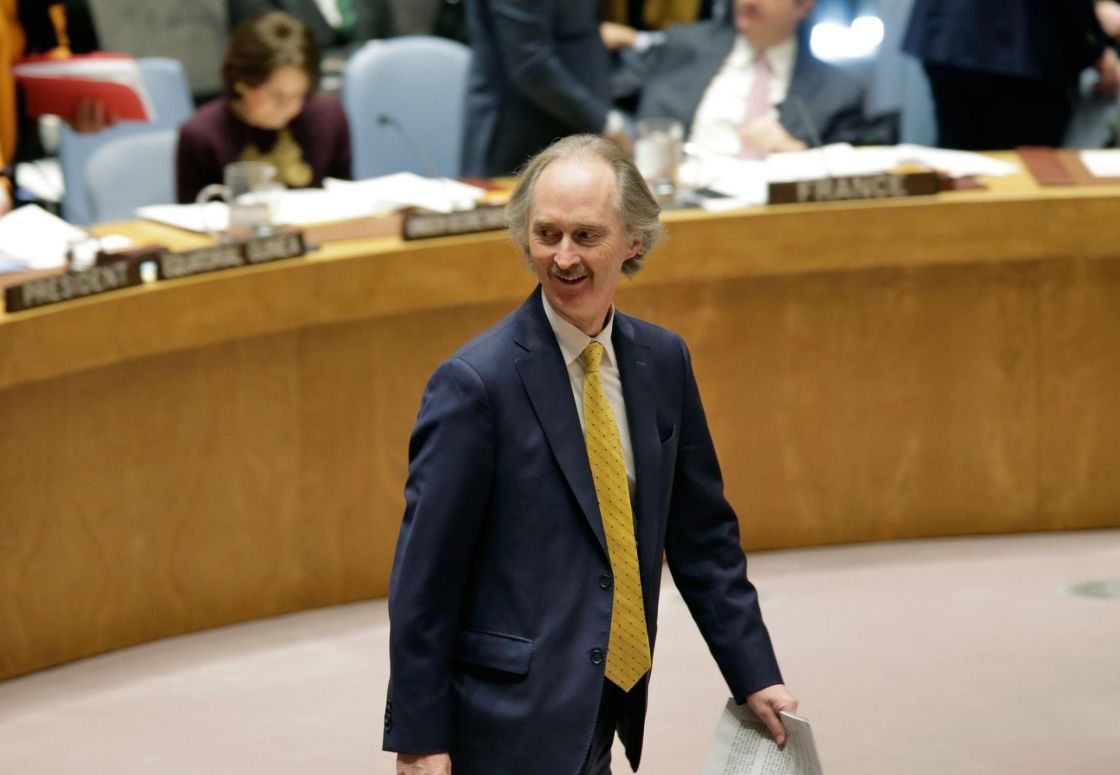- Editorials
- Posted
The Required Role of the United Nations
Since the Syrian crisis was internationalized, the UN role for solving this crisis, and then its role for the comprehensive implementation of the UNSCR 2254, has been talked about as if it were unclearly defined role, and subjected to interpretational tensions.
While the UNSCR 2254 itself defines the role of the United Nations as a facilitator, but what has been assigned to this role in different phases of the crisis ranges from less facilitation to much more one. there are many instances of that. One of the examples, among many others, is the UN position on the issue of the "third third" in the Constitutional Committee, where de Mistura, at the time, turned a blind eye to the proposals of the extremist opposition, which dubbed the third third as "the de Mistura's Third", and they did that for nothing but to give a pretext to the extremists of the other party to say that The United Nations cannot stand against the Syrian regime to discuss the composition of a committee dealing with an issued related to sovereignty as the issue of the Syrian constitution. If this kind of opposition wanted to facilitate the matter, it would have been involved in the third-third debate to make the role of the United Nations a mediator between the two Syrian parties.
The biggest problem in the behavior of the United Nations towards the Syrian crisis is its attempt to play an intermediary role not among the Syrian parties, but among the international actors in the Syrian affairs. This attempt, even if it is serious, the problem still exists; the UN task according to UNSCR 2254 is not to facilitate understandings among foreign states on Syria, but rather to facilitate understandings among Syrians on the political solution.
This problem is reflected in the processes of wasting time that have gone through de Mistura's period, and are continuing in Pedersen's period, under the banner of trying to combine Astana with the Small Group.
Considering these attempts, a theoretical and practical possibility presents itself: What if one of the two groups mentioned above does not want to resolve the crisis but wants to continue and deepen it? Should the United Nations facilitate the work of the obstructing group and adjust its own rhythm to that of this obstructing group? (The fact that everyone should move together towards a solution to the Syrian crisis means adjusting the pace of this trend to the slower pace, let alone if it goes against the solution like the small group?).
It is well known that the United Nations remains essentially an institution tailored according to the old world and the old balance of power, and this has become unable to continue in this form. Syrians do not have to wait for the UN organization to complete its own slow adaptation, while they are paining their blood and suffering during the waiting time. The United Nations, and Mr. Pederson's team in particular, must put its weight in the direction that allows for the resolution of the Syrian crisis, away from the delusions of reconciling those who want a solution with those who do not. Otherwise, the very role of the United Nations as a whole will be turned into a subject of serious reconsideration, and perhaps a serious and rapid reconsideration!
Kassioun Editorial, Issue No. 931, Sept. 16, 2019


